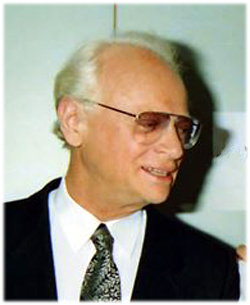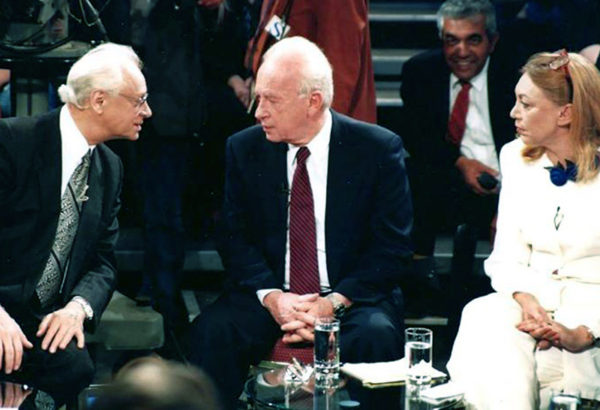When Ferenc (Ferike) Kishont arrived in Israel in 1949, he spoke not a single word of Hebrew. But within a decade, he had changed his name to Ephraim Kishon and had become one of Israel’s most successful writers. Before he passed away, he had written 40 books and was the most translated author in Israeli history.
Perhaps Israel’s greatest humorist, he’s the subject of Elaiv Lilti’s absorbing documentary, Kishon, which will be screened at the Toronto Jewish Film Festival on May 4 and 11. Composed of an animated interview between Israeli journalist Yoram London and Kishon, file footage of the places that left an imprint on him, and on-camera interviews with his two sons and daughter, it takes a viewer into the heart and soul of a Holocaust survivor who normalized himself through humor.

Born in Budapest in 1924, Ferenc Hoffmann, as he was originally known, was the son of middle-class Hungarian Jews. But with the 1944 German invasion and occupation of Hungary, every Jew was suddenly in great peril. Kishon was sent to a labor camp, but thanks to his chess skills he was treated leniently.
After escaping, he assumed the identity of a Slovakian national and boarded a train bound for Budapest. Fortunately for Kishon, American aircraft bombed the city, relieving him of the dangerous task of trying to convince German soldiers looking for Jews that he was not a Jew.
In Budapest, he went into hiding and was reunited with his parents. As he waited for the war to end, he wrote his first novel. With peace at hand, he joined the staff of a satirical magazine funded by the newly installed Communist government. Soon realizing that freedom of expression would not be tolerated by a regime beholden to the Soviet Union, he and his first wife, Chava, immigrated to Israel.
Life was hard in the new Jewish state. They were assigned to an encampment where they shared a tin shack with a large Moroccan family. After they moved to a kibbutz, Kishon cleaned toilets. Being industrious and ambitious, he waded through a dictionary and learned 20 Hebrew words a day. In short order, he had mastered the language and was writing a column for Omer, a newspaper for new immigrants.
Having been impressed by his columns, the editor of Maariv, one of Israel’s biggest newspapers, offered Kishon a daily column. It was his for 30 years. But one wonders whether he really enjoyed being a columnist. Writing is “grunt work,” he says at one point in the film.
A versatile professional, he became a playwright and a screenwriter. In the meantime, he continued to write novels. Two of his most accomplished ones were Look Back, Mrs. Lot and So Sorry We Won!
His first movie, Sallah Shabati, earned him plaudits, an Oscar nomination and a Golden Globes award for best foreign movie. He made a few more films, including Ervinka, but his last movie, The Fox in the Chicken Coup, was an abject failure and led him to the conclusion that he was not sufficiently appreciated in Israel. In 2002, however, he was awarded the Israel Prize for lifetime achievement.
In the meantime, he was plunged into turmoil when his marriage broke up. His second attempt at matrimonial bliss was more successful. His wife, Sara, we’re told, was his best friend and confidant for 35 years.
According to his daughter, the Holocaust shaped his personality. A cold, calculating person, he was suspicious of people. And when he drove his car, he listened to cassettes of Adolf Hitler’s speeches.

For all intents and purposes, Kishon left Israel in the early 1980s and bought a chalet in a scenic Swiss town. For reasons never explained, Sara chose to remain behind in Israel. His children assume he had affairs in Switzerland. As a writer, he prospered in Europe, his books having been particularly popular in Germany, a country he once vowed never to visit. When Sara died, he married Lisa, an Austrian novelist who speaks highly of him.
Kishon died in exile in 2005, but his name still strikes a chord in Israel.